Here’s Why Your Usual Skincare Routine Isn’t Enough for Winters
- Urvashi Kaushal
- Dec 30, 2024
- 6 min read
Say goodbye to sneaky winter woe
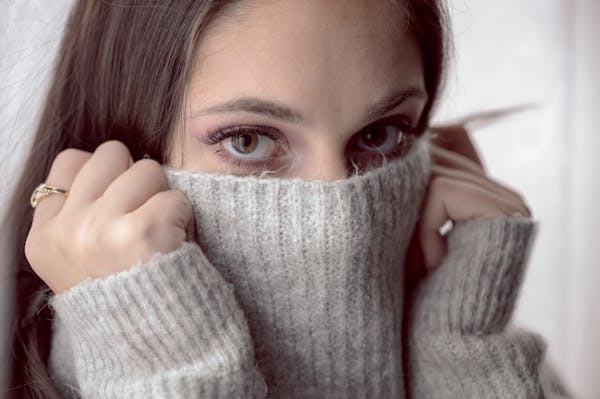
Winter has set in, and I must say, it's my favorite season over the rest. Isn't that magical? Be it crisp air, cozy sweaters, or that soft sheen of the winter sun-the trees dreamlike, the skies turning into an art palette of whites and blues, and let's not talk about food! Hot cocoa to munch on lip smacking winter sweets (anyone up for Gajar ka Halwa or Moong dal Halwa) the perfect cuddle season is here.
But hold on! Winters are not just about changing your wardrobes or enjoying your dessert. They come in wholesome packages of sweet and bitterness. And if you ask me, the real struggle lies in managing your skincare routine in winters! You guessed it: chapped lips, relentless dry skin, and cracked heels. For the love of God, cold air outside and dry heat indoors are teaming up for the grandest show of their moisture-snatching abilities; you have ridiculously dry, flaky skin that isn't cute at all. And your regular skincare routine is just not enough.
However, making a few changes to your winter skincare routine could get back those soft and supple tones. It's really about sealing in any and all moisture, choosing the right products, and providing your skin with some extra-loving care when it needs it most. Interested in learning how to keep your skin shining bright through winter? Let's break it down!
Why Does My Skin Get So Dry in Cold Weather?

Winters may bring a soothing relief from hot and humid weather but it’s not at all soothing for your skin and this always makes us wonder — “Why is my skin so dry in winter?” Let’s sip hot cocoa and find out the reasons for dry skin in winters.
1. There is No Moisture in The Air
The winter air is infamous for its low humidity. It absorbs water from any available sources, even your skin! This leads to your skin feeling tight, dry and uneasy.
2. Your Indoor Heating is a Moisture Thief
Even while we enjoy cuddling with the heating on, doing so is actually damaging your skin. Indoor heating dehumidifies the air (and your skin). This leaves you with rough, flaking skin.
3. Bitter Cold and Windy Conditions
Cold winds harm your skin's natural barrier in addition to being chilly. Your skin is prone to dryness and irritation because it has trouble retaining moisture.
4. Your Skin’s Barrier Becomes Weak
Your skin has a natural protective layer that locks in moisture. This barrier is weakened by cold temperatures, which results in water loss and excessive dryness of the skin.
5. Hot Showers Can Be Dangerous
A warm shower seems like heaven on a cold day, but the hot water takes your skin's natural oils, causing dryness.
6. Ignoring SPF in Winters
Most of us feel like sunscreens are routine for summer only. Well, it may surprise you to learn that UV radiation persists throughout the winters too. The sun's rays may worsen skin dryness and damage.
What Are The Common Winter Skin Problems? How to Prevent Them?

Your skin is often the first one to bear the brunt of winter. From dry skin to winter acne let’s see what are the common winter skin conditions, and how to prevent them.
1. Dryness and Flakiness.
The chilly air outside and warm inside conditions consume your skin's natural oils, making it harsh, itchy, and prone to flaking. This might dim your radiance and cause discomfort to your skin.

Tips for keeping skin hydrated in winter
It is advised to choose a heavy moisturizer for winters which has nourishing components like shea butter and glycerin.
Apply moisturizer right after taking a shower, to keep your skin moist.
Even if you are not perspiring as much, make sure to stay hydrated by drinking lots of water.
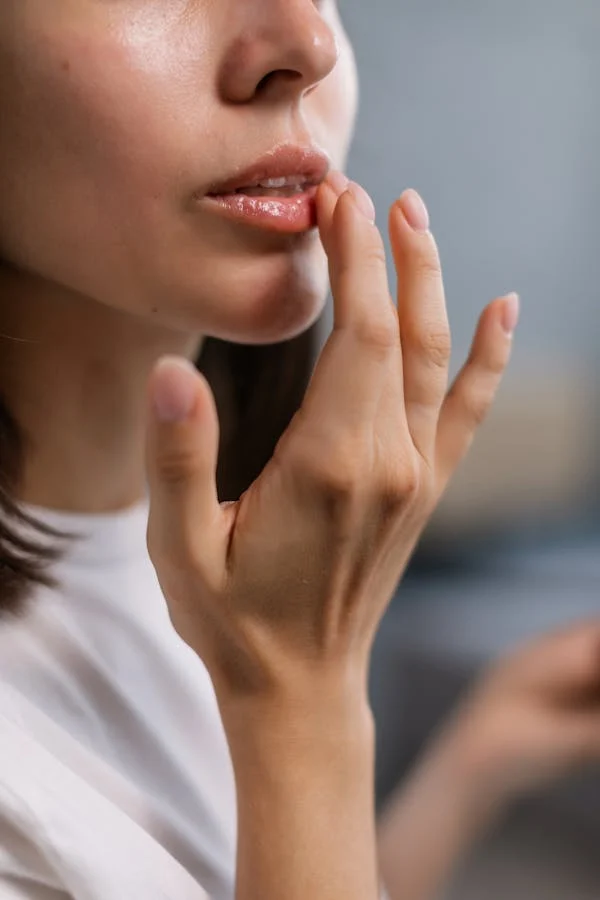
2. Chapped Lips
Cold air, along with constant lip-licking, may exacerbate the condition, resulting in cracks that take longer to heal. Cracks may become infected if they are not addressed.
How to treat chapped lips during winter?
Use a moisturizing lip balm that contains hydrating components, such as cocoa butter or beeswax.
Lip licking aggravates dryness, therefore refrain from doing it.
3. Flare-Ups of Eczema
The winter months can be particularly rough for people with eczema. Prolonged exposure to hot water in cold weather damages the protective layer of your skin and causes discomfort. Areas including the elbows, knees, hands, and cheeks are frequently affected by eczema.
Tips to manage eczema flare-ups in winter
Apply a thick moisturizer without any scent to relieve inflammation.
Take only one lukewarm bath to avoid over exposure to water.
Opt for soft material clothes to reduce the effect of friction on your skin.
4. Rosacea
Rosacea results in flushing, redness, and at times tiny pimples that resemble acne on the face. Other probable causes include irritation, stress, medicines, and other triggers.
Rosacea treatment in cold weather
Avoid or limit the intake of alcohol, caffeine, spicy foods, and extremely hot beverages.
Use a scarf or muffler to cover your face when stepping outside.
Go for products which are crafted for sensitive skin.
5. Cracked Heels
Due to exposure to dry air neglecting moisturizer, your heels suffer severely. The cracked heels might hurt badly or may bleed in worse situations.
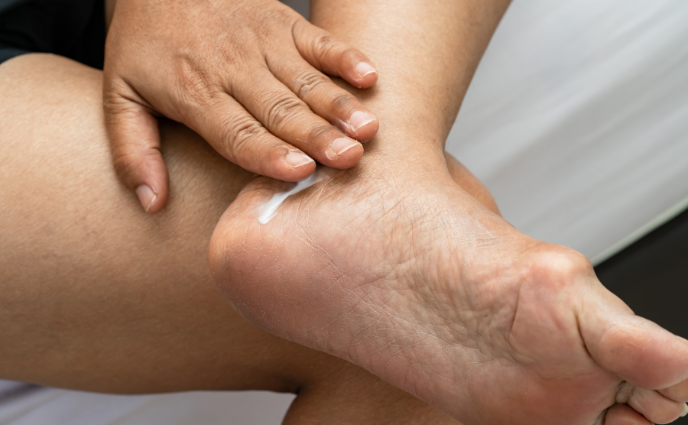
How to fix cracked heels in winter?
To prevent moisture loss, use a thick cream or petroleum jelly at night. Cover with socks to lock the moisture.
Use a pumice stone to get rid of dead skin.
Avoid soaps that deplete natural oils.
6. Winter Acne
While excessive oil production can lead to infection, dead skin cells, and clogged pores, acne can also be caused by dry skin. Acne can develop anywhere on the body, although it usually shows up more often on the face, neck, shoulders, chest, back, and upper arms.
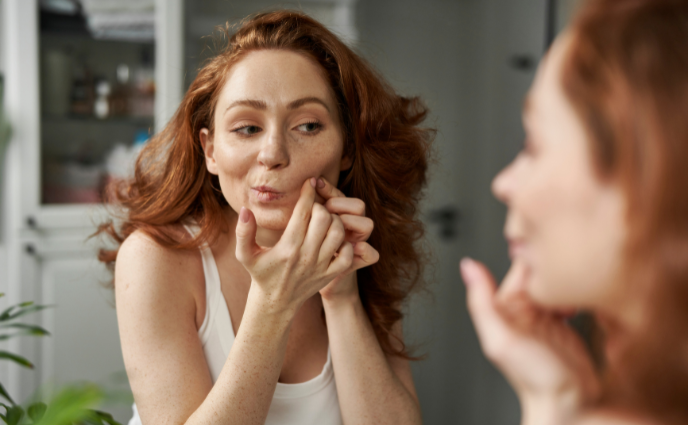
Tips to prevent acne in winter
Use a gentle cleanser and a non-comedogenic moisturizer.
Refrain from touching your face to avoid spreading of bacteria.
Seek help from a dermatologist to get a personalized treatment plan.
The Ultimate Skincare Routine for Winter
A dedicated winter skincare routine can help combat the effects of harsh weather, dry indoor air, and low humidity. The key is to focus on hydration, protection, and repair. Here's a simple guide to creating the perfect morning and night skincare routine for winter, with tips to keep your skin glowing and healthy all season.
Morning Skincare Routine for Winter

1. Cleanse Gently
For the winter, use a moisturizing cleanser that helps to get rid of your skin's natural oils while still eliminating impurities. Seek out components such as glycerin or hyaluronic acid.
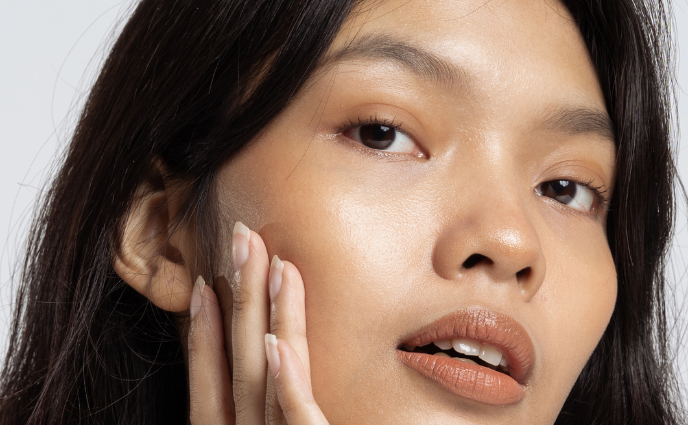
2. Hydrating Toner
Apply a hydrating toner to balance your skin’s pH level. Avoid using alcohol-based toners as they might further dry out your skin.
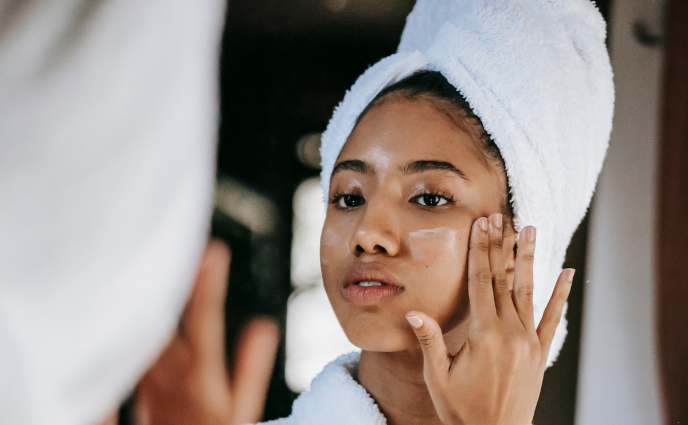
3. Moisturize Deeply
Apply a thick layer of moisturizer that contains squalane, shea butter, or ceramides afterward. These components support the integrity of your skin barrier and assist retain moisture.

4. Sunscreen is Must
SPF is unavoidable, even in the winter. Apply a broad-spectrum sunscreen with an SPF of 30 or higher to shield your skin from damaging UV rays and delay the onset of premature aging.

5. Keep Your Lips Hydrated
As a final step, apply a nourishing lip balm in your morning routine to prevent chapping. Go with SPF for extra protection.
Night Skincare Routine for Winter
1. Get Rid of Makeup or Grime
Use a mild winter cleanser to get rid of pollutants, makeup, and grime. If necessary, do a double cleaning to guarantee that your skin is completely clean.
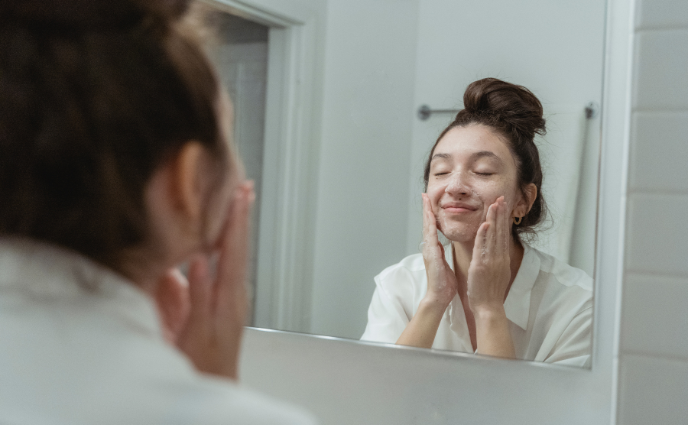
2. Exfoliate Once or Twice a Week
To get rid of dead skin cells and enhance the absorption of other products, use a gentle chemical exfoliator that contains lactic or glycolic acid. Excessive exfoliating might irritate skin, so avoid doing it.
3. Put on Some Hydrating Serum
For nighttime skin brightening and moisture replenishment, use a serum containing vitamin C or hyaluronic acid.
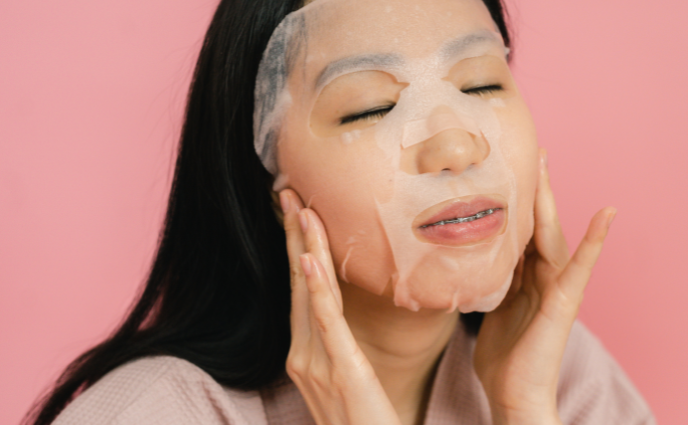
4. Pamper with Hydrating Masks and Nourishing Oils
Incorporate a hydrating face mask or facial oil into your routine once or twice a week to give your skin the extra care it craves. Choose products with natural oils like jojoba or almond oil, or opt for masks infused with hydrating ingredients such as glycerin for a soothing boost.
5. Moisturize Intensely
Apply a rich, nourishing night cream or overnight mask to moisturize deeply. To restore your skin barrier, look for products enhanced with peptides and ceramides.
6. Soothe with a Gentle Eye Cream
Enhance your nighttime skincare routine by applying a rich eye cream packed with humectants to deeply nourish the delicate under-eye area. Use your ring finger to gently dab and massage the cream, ensuring even absorption without tugging at the skin.
7. Apply a Hand Cream and Lip Balm
To keep these regions hydrated and supple, use a hand cream and a rich lip balm before bed. Consider spending the night in cotton gloves if you have cracked hands.



Comments